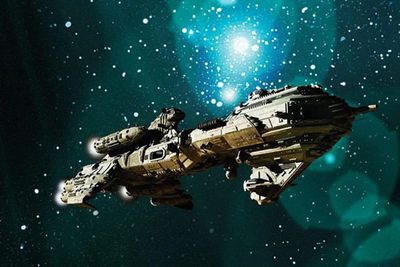August 9, 2020
Finished Children covid-19: day 152 | US: GA | info | act
Today I finished Adrian Tchaikovsky’s Children of Time, and I have to say it was excellent. There are many aspects I could discuss—like the ark ship Gilgamesh[1] and its inexplicable journey, the evolution and struggle of the spider society; the evocative fallen empire that was technologically advanced, but something less than human; the aging of the ship’s humans, devolving as their aching ship breaks down; the build-up to the inevitable conflict.
As I mentioned before: the human characters are all pretty awful. Most of the time, the omniscient narrator sticks with him; I supposed he does so because most of the other characters would be much less sympathetic. At least this humanist, Holsten Mason, is able to maintain a tenuous hold on his humanity through most of the book. It seems as if Tchaikovsky is making the point that humanity cannot survive in these extended time periods: that to extend the human beyond 100 years of so, turns them into something . . . less.
This suggests the most interesting part of the novel: probably because of the whole pandemic. The spiders are uplifted by a virus programmed to accelerate their evolution. As they evolve, the spiders eventually figure out that it’s the virus that has gifted them “Understandings”—or genetic knowledge and skills that can be passed through procreation. Imagine: knowledge encoded into our DNA. Eventually they learn to distill these Understandings, so they can be consumed when needed, like drinking a foreign language or guitar virtuosity. In this lies the whole outcome of the novel: something I didn’t guess until I was probably supposed to. Well done, Tchaikovsky. It turned what was heading for an awful ending into something beautiful.
Now, should I move to the sequel? At some point.
Note
- ↑ Perhaps a nod to the first epic and its protagonist’s search for immortality?
[{Category:Science Fiction]]
